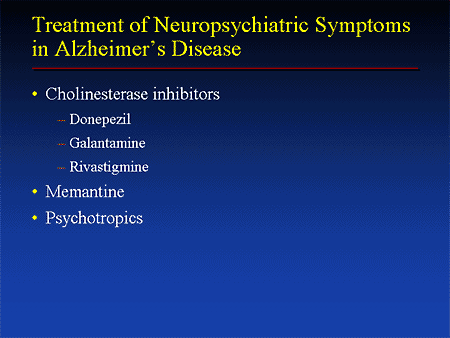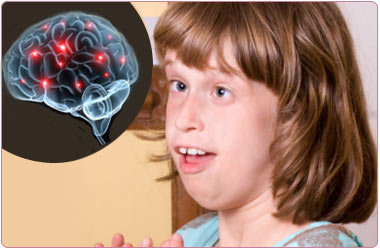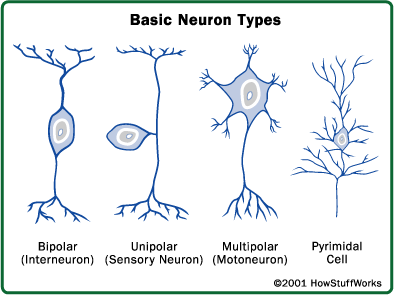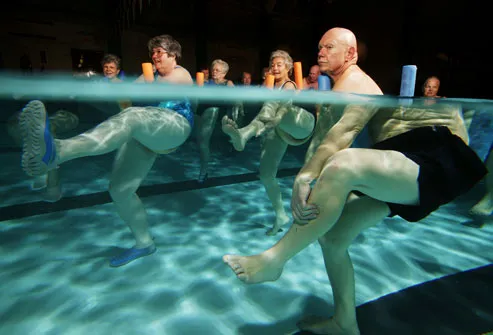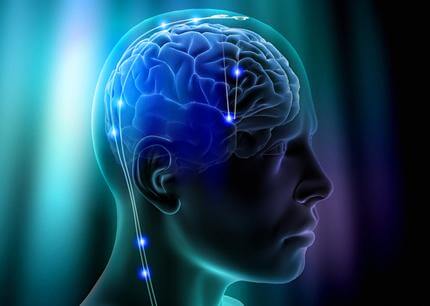You are here : health.am > Health Centers > Neurology
Neurology
Finding ways to detect and treat Alzheimer’s disease
• Brain • • Neurology • Feb 17 14
Alzheimer’s disease has long been marked by progress - but not the kind of progress the medical community seeks. It is the most…
![]()
Why does the brain remember dreams?
• Brain • • Neurology • Feb 17 14
Some people recall a dream every morning, whereas others rarely recall one. A team led by Perrine Ruby, an Inserm Research Fellow at the…
![]()
Meditation might reduce workplace stress
• Neurology • Feb 14 14
Regular doses of meditation might prevent work-related stress and burnout, a small U.S. study suggests.
Teachers and support staff working at a school for…
![]()
Sedation before nerve block increases risk, not pain relief
• Neurology • • Pain • Feb 13 14
New research suggests that sedating patients before a nerve block needed to diagnose or treat chronic pain increases costs, risks and unnecessary surgeries, and…
![]()
Rett syndrome genetic variants now available for advance testing, diagnosis & research
• Children's Health • • Genetics • • Neurology • Feb 06 14
Despite the identification of gene mutations in methyl CpG binding protein 2 (MECP2) being linked to Rett syndrome (RS), research has been hindered by…
![]()
Early treatment with AED reduces duration of febrile seizures
• Children's Health • • Epilepsy • • Neurology • Feb 05 14
New research shows that children with febrile status epilepticus (FSE) who receive earlier treatment with antiepileptic drugs (AEDs) experience a reduction in the duration…
![]()
Potential biomarkers for the diagnosis of Alzheimer’s disease
• Brain • • Neurology • Feb 01 14
In a study published this week in Nature Neuroscience, Bess Frost, PhD, and co-authors, identify abnormal expression of genes, resulting from DNA relaxation, that…
![]()
Study Shows Autistic Brains Create More Information at Rest
• Brain • • Neurology • Feb 01 14
New research from Case Western Reserve University and University of Toronto neuroscientists finds that the brains of autistic children generate more information at rest…
![]()
How does the brain create sequences?
• Brain • • Neurology • Jan 26 14
When you learn how to play the piano, first you have to learn notes, scales and chords and only then will you be able…
![]()
Fast eye movements: A possible indicator of more impulsive decision-making
• Neurology • Jan 21 14
Using a simple study of eye movements, Johns Hopkins scientists report evidence that people who are less patient tend to move their eyes with…
![]()
Researchers identify innate channel that protects against pain
• Neurology • • Pain • Jan 21 14
Scientists have identified a channel present in many pain detecting sensory neurons that acts as a ‘brake’, limiting spontaneous pain. It is hoped that…
![]()
Study finds decreased life expectancy for multiple sclerosis patients
• Neurology • Jan 21 14
The first large scale study in the U.S. on the mortality of patients with multiple sclerosis (MS) has been published and provides new information…
![]()
Vitamin D status associated with multiple sclerosis activity, progression
• Neurology • Jan 20 14
Vitamin D status appears to be associated with reduced disease activity in patients with multiple sclerosis (MS) and a slower rate of disease progression,…
![]()
Toddlers’ aggression is strongly associated with genetic factors
• Children's Health • • Genetics • • Neurology • Jan 20 14
The development of physical aggression in toddlers is strongly associated genetic factors and to a lesser degree with the environment, according to a new…
![]()
Cleveland Clinic identifies mechanism in Alzheimer’s-related memory loss
• Brain • • Neurology • Jan 19 14
Cleveland Clinic researchers have identified a protein in the brain that plays a critical role in the memory loss seen in Alzheimer’s patients, according…
![]()
Brain regions ‘tune’ activity to enable attention
• Brain • • Neurology • Jan 15 14
The brain appears to synchronize the activity of different brain regions to make it possible for a person to pay attention or concentrate on…
![]()
Benefits of cognitive training can last 10 years in older adults
• Brain • • Aging and Gerontology • • Neurology • Jan 13 14
Exercises meant to boost mental sharpness can benefit older adults as many as 10 years after they received the cognitive training, researchers said…
![]()
Mid-life job stress linked to later health problems
• Neurology • • Psychiatry / Psychology • Dec 26 13
More strain at work might mean more illness in old age, according to a new study from Finland. The study found both physical and…
![]()
Are concussions related to Alzheimer’s disease?
• Brain • • Neurology • Dec 26 13
A new study suggests that a history of concussion involving at least a momentary loss of consciousness may be related to the buildup of…
![]()
Molecular markers used for assessment of early sciatic nerve injury
• Neurology • Dec 26 13
Substance P and calcitonin gene-related peptide are the main neuropeptides in peripheral nerve ganglia, which can anterogradely transmit nociceptive information to the central nervous…
![]()
Study shows Where Alzheimer’s starts and how it spreads
• Brain • • Neurology • Dec 22 13
Using high-resolution functional MRI (fMRI) imaging in patients with Alzheimer’s disease and in mouse models of the disease, Columbia University Medical Center (CUMC) researchers…
![]()
Preferable treatment for MS found in allogenic bone marrow stem cells
• Neurology • Dec 18 13
Multiple sclerosis (MS), an inflammatory autoimmune disease affecting more than one million people worldwide, is caused by an immune reaction to myelin proteins, the…
![]()
Self-worth boosts ability to overcome poverty
• Brain • • Neurology • • Public Health • Dec 17 13
For people in poverty, remembering better times - such as past success - improves brain functioning by several IQ points and increases their willingness…
![]()
Molecular sensor detects early signs of multiple sclerosis, Gladstone study finds
• Neurology • Dec 03 13
For some, the disease multiple sclerosis (MS) attacks its victims slowly and progressively over a period of many years. For others, it strikes without…
![]()
Do sports concussions really cause chronic traumatic encephalopathy?
• Brain • • Neurology • • Trauma & Injuries • Dec 03 13
It’s been widely reported that football and other contact sports increase the risk of a debilitating neurological condition called chronic traumatic encephalopathy (CTE).
